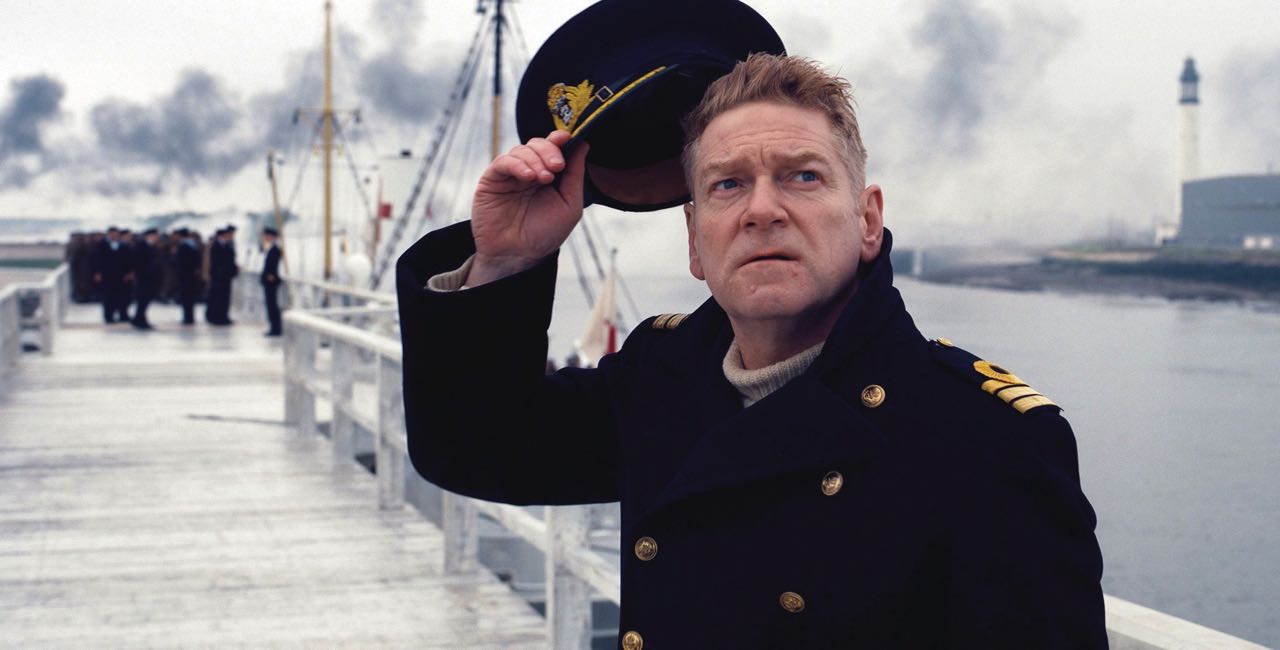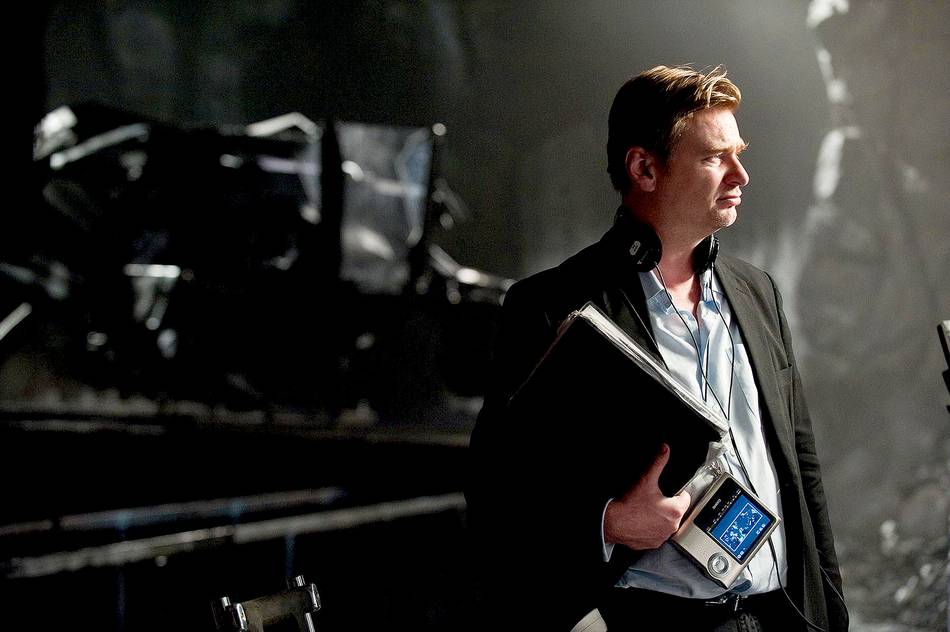DUNKIRK - Academy Award Nominations
BEST PICTURE
Emma Thomas, Christopher Nolan
BEST DIRECTOR
Christopher Nolan
BEST CINEMATOGRAPHY
Hoyte Van Hoytema
BEST PRODUCTION DESIGN
Nathan Crowley, Gary Fettis
BEST ORIGINAL SCORE
Hans Zimmer
BEST FILM EDITING
Lee Smith - WINNER
BEST SOUND EDITING
Richard King, Alex Gibson - WINNER
BEST SOUND MIXING
Gregg Landaker, Gary Rizzo, Mark Weingarten - WINNER
Christopher Nolan isn't your standard cinematic storyteller.
Just as most tales have a beginning, middle and an end, a Hollywood script normally follows a basic formula of three acts.
Act 1 sets the scene and introduces the characters, before the protagonist is forced to face a major incident or crisis, changing his or her life, and raising questions that will inevitably be answered at the film’s conclusion. In Act 2, rising action sees the protagonist's character develop and evolve as they form bonds with unlikely allies and struggle to overcome adversity and a series of obstacles. Act 3 is the climax (often a big fight scene) and its aftermath.
That's not how Nolan works. He throws the rulebook — and the clock — out the window.
While you can be certain of a dramatic conclusion to his movies, the director shuns a formulaic, linear narrative in favour of unexpected twists, turns and overlapping chronological streams. In particular, redefining the conception of time is a recurring motif in Nolan's films.




In Inception, with each layer of the subconscious the movie's team of dream thieves enters, time passes more slowly in the real world, while remaining fluid in that particular realm. In Interstellar, inspired by the scientific theories of noted theoretical physicist Kip Thorne (few blockbusters can be said to boast such a cerebral underpinning), the characters punch through the walls of time, communicating with one another across the years, and at one point, entering a black hole’s warp where minutes equal months in 'real time'. The Prestige starts with its ending, rewinds to the backstory, then returns to a 'big reveal' that challenges the viewer's memory of what they've seen transpire. Meanwhile, with repeat flashbacks, the director’s 'Dark Knight' Batman trilogy explores the effects of past childhood traumas on an adult.
Most notable in its twisting of time and standard chronological narrative, Nolan's breakout movie Memento features a protagonist suffering from a form of amnesia that prevents him forming new memories — like a goldfish, every five minutes he starts afresh. Hunting his wife's murderer, he uses Polaroid photos and tattoos to maintain a record of the supposed 'facts' of his life. Two different sequences of scenes (one in black-and-white running chronologically, and another in colour that plays in reverse order) are interspersed, joining at the movie’s end to provide a clarified narrative.
Nothing quite like Memento had been seen on screen before. An expert in the field from the United States National Institute of Mental Health called the film a nearly "perfect exploration of the neurobiology of memory." A review in the Wall Street Journal proclaimed, "I can't remember when a movie has seemed so clever, strangely affecting and slyly funny at the very same time."


Clever and affecting though it may be, there's little sly humour to be found in Nolan's latest work, Dunkirk. Its only quirk is the director's signature use of a non-traditional time structure. The highest-grossing World War II film of all time (with ticket sales in excess of US$525 million worldwide), Dunkirk recounts the evacuation of Allied soldiers from France in 1940, in the face of fierce attack from advancing Nazi forces. Cutting between them throughout, the story progresses along three distinct planes of time — the viewer follows one set of characters over the course of a week (in the storyline called "The Mole"), another over a day ("The Sea"), and yet another over an hour ("The Air"). The movie’s overall two-hour duration means time necessarily passes far quicker for certain characters than others.




There's also the overwhelming sense that time is running out — as indeed it was for the trapped Allied forces, desperately attempting to escape a rapidly encroaching enemy. This is emphasized by the score created by frequent Nolan collaborator, Hans Zimmer, which utilizes a ticking clock motif to highlight the countdown to rescue or doom.

Vitally, the film allows the audience to travel through time, to truly identify with those members of 'the Greatest Generation' who experienced the horrors of World War II. As Dunkirk brings into stark relief, they're just like men we know (or are) today. Veterans who'd actually served in the war were especially affected. "It was just like I was there again," one 97-year-old British survivor of Dunkirk said in an interview after watching the movie. "I was in those little boats picking (men) out of the water," Royal Navy WW2 veteran Ken Sturdy recalled.
"I had the privilege of seeing that film tonight but I’m saddened by it because of what happened on that beach. Watching the movie, I could see my old friends again and a lot of them died in the war… I lost so many of my buddies," Sturdy emotionally remarked. "Tonight I cried because it’s never the end. It won’t happen. We the human species are so intelligent and we do such astonishing things. We can fly to the moon but we still do stupid things."




Christopher Nolan may be a master at warping time and playing tricks with memory, but with Dunkirk, his greatest achievement is in helping us vividly revisit a moment in time we must never forget.



















SENATUS Member Comments